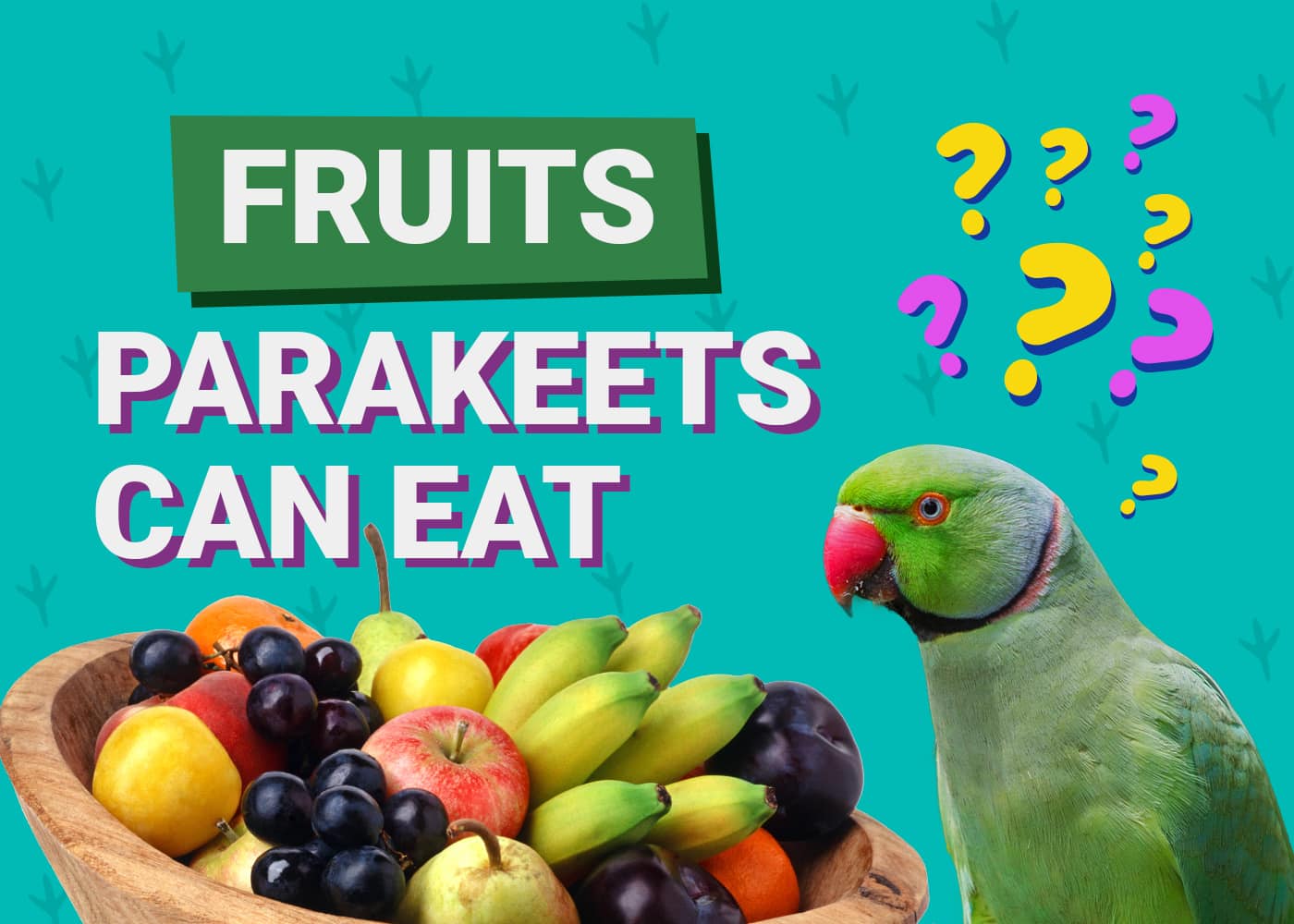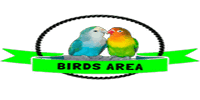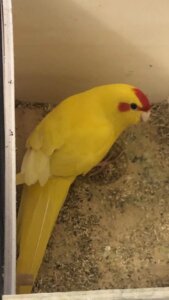Can Kakarikis Eat Honeydew Melon? Discover the Benefits
Yes, Kakarikis can eat honeydew melon. It is safe and healthy for them.
Honeydew melon is a nutritious treat for your feathered friend. Kakarikis are lively and curious birds. They love exploring new foods. Adding fruits like honeydew melon to their diet can be a delightful change. This fruit is rich in vitamins and minerals.
It helps keep your bird healthy and happy. But, moderation is key. Too much fruit can cause health issues. Always ensure a balanced diet. In this blog, we will discuss the benefits and precautions of feeding honeydew melon to Kakarikis. We will also share tips on how to serve it safely. Stay tuned to learn more about this tasty treat for your pet!
Introduction To Kakarikis
Kakarikis are lively parrots known for their vibrant colors and playful nature. They can enjoy honeydew melon as a tasty treat. Ensure it’s fresh and cut into small, manageable pieces.
Kakarikis are small, vibrant parrots native to New Zealand. Known for their playful and curious nature, these birds make delightful pets. They are active, intelligent, and social creatures. If you care for a Kakariki, understanding its needs is essential.About Kakarikis
Kakarikis, also known as New Zealand Parakeets, belong to the genus Cyanoramphus. They have bright green plumage, often with red or yellow markings on their heads. These birds are known for their energetic behavior. They enjoy flying, climbing, and exploring their environment. Kakarikis thrive in a stimulating setting. They need mental and physical engagement. Providing toys and activities helps keep them happy. These birds are also vocal and can mimic sounds. Their unique personality makes them a joy to have around.Dietary Needs
A balanced diet is crucial for a Kakariki’s health. Their diet should include seeds, fruits, and vegetables. Fresh food is important for their well-being. While seeds are a staple, variety is key. Fruits like apples, pears, and berries are good choices. Vegetables such as carrots, spinach, and peas are beneficial. Always ensure the food is safe and free from pesticides. Can Kakarikis eat honeydew melon? Yes, they can. Honeydew melon is a safe and nutritious treat. It provides hydration and essential vitamins. Always serve it in moderation. Remove any seeds before offering it to your bird. Understanding their dietary needs ensures a long and healthy life for your Kakariki. “`
Credit: pangovet.com
Honeydew Melon Overview
Honeydew melon is a sweet, juicy fruit. Its pale green flesh and smooth rind make it easy to recognize. This fruit is not only delicious but also packed with nutrients. Let’s explore the nutritional content and health benefits of honeydew melon.
Nutritional Content
Honeydew melon is low in calories and high in essential vitamins and minerals. Here’s a quick look at its nutritional profile per 100 grams:
| Nutrient | Amount |
|---|---|
| Calories | 36 |
| Vitamin C | 18% of RDI |
| Vitamin B6 | 5% of RDI |
| Potassium | 8% of RDI |
| Fiber | 1 gram |
Health Benefits
Honeydew melon offers several health benefits:
- Boosts Immunity: The high vitamin C content helps strengthen the immune system.
- Aids Digestion: Its fiber content supports a healthy digestive system.
- Hydration: Composed of about 90% water, honeydew melon helps keep the body hydrated.
- Heart Health: Potassium helps regulate blood pressure and supports heart health.
- Skin Health: Vitamins and antioxidants promote healthy, glowing skin.
Including honeydew melon in your diet can be a refreshing way to enjoy these health benefits.
Safety Of Honeydew Melon For Kakarikis
Many bird owners often wonder if honeydew melon is safe for their feathered friends. Kakarikis, known for their playful nature, enjoy a varied diet. Ensuring the safety of their food is crucial. Let’s explore if honeydew melon is a good choice.
Potential Risks
Honeydew melon is generally safe for Kakarikis. Yet, there are some potential risks to consider:
- Pesticides: Melons can have pesticide residues. Always wash them thoroughly.
- Seeds: Remove seeds to prevent choking.
- High Sugar Content: Too much can lead to obesity and other health issues.
Safe Feeding Practices
To ensure your Kakariki enjoys honeydew melon safely, follow these practices:
- Wash Thoroughly: Clean the melon to remove pesticides and dirt.
- Remove Seeds: Take out all seeds to avoid choking hazards.
- Cut into Small Pieces: Small, manageable pieces are easier for your bird to eat.
- Moderation: Offer honeydew melon as an occasional treat, not a staple food.
Below is a simple table summarizing the dos and don’ts of feeding honeydew melon to Kakarikis:
| Dos | Don’ts |
|---|---|
| Wash thoroughly | Give seeds |
| Cut into small pieces | Overfeed |
| Offer in moderation | Ignore signs of overfeeding |
By following these guidelines, you can safely include honeydew melon in your Kakariki’s diet. Your bird will enjoy the sweet taste without any health risks.

Credit: leashingler.wixsite.com
Benefits Of Honeydew Melon For Kakarikis
Honeydew melon is a delicious and healthy treat for Kakarikis. This juicy fruit offers several benefits, making it an excellent addition to their diet. Let’s explore the key benefits honeydew melon provides to these vibrant birds.
Hydration
Honeydew melon contains a high water content. This helps keep Kakarikis hydrated. Proper hydration is vital for their overall health. It supports digestive functions and keeps their feathers in good condition. Offering honeydew melon as a snack can ensure they get enough fluids, especially during hot weather.
Nutrient Boost
Honeydew melon is rich in vitamins and minerals. It provides a good source of vitamin C, which boosts the immune system. The fruit also contains vitamin B6, which aids in brain function. Essential minerals like potassium and magnesium are also present. These nutrients help maintain muscle and nerve function.
| Nutrient | Benefit |
|---|---|
| Vitamin C | Boosts immune system |
| Vitamin B6 | Aids brain function |
| Potassium | Maintains muscle function |
| Magnesium | Supports nerve function |
Including honeydew melon in their diet ensures Kakarikis receive these essential nutrients. It keeps them healthy and vibrant.
In summary, honeydew melon offers hydration and a nutrient boost. These benefits make it an ideal treat for Kakarikis. Introduce this fruit into their diet to support their well-being.
Introducing Honeydew Melon
Honeydew melon is a sweet, juicy fruit. It can be a delightful treat for your Kakariki. This fruit is packed with water and essential nutrients. But, before feeding it to your bird, some steps are necessary.
Initial Steps
First, choose a ripe honeydew melon. Check for a creamy yellow color. It should feel heavy for its size. Avoid melons with soft spots or cracks.
Next, wash the melon thoroughly. Use clean water to remove any pesticides or dirt. Then, cut the melon into small, bite-sized pieces. Remove all seeds. Seeds can be a choking hazard for Kakarikis.
Monitoring Reactions
Offer a small piece of melon to your Kakariki. Observe how your bird reacts. Look for signs of enjoyment or disinterest.
It’s important to monitor your bird for any allergic reactions. Watch for symptoms like vomiting, diarrhea, or changes in behavior. If any adverse reactions occur, stop feeding the melon.
Introduce honeydew melon slowly. Mix it with their regular diet. This helps prevent digestive issues.

Credit: leashingler.wixsite.com
Alternative Fruits For Kakarikis
Kakarikis enjoy a variety of fruits in their diet. Offering different fruits can keep them healthy and happy. Honeydew melon is safe, but it is good to know other options.
Other Safe Options
Other fruits are also safe for Kakarikis. Apples are a favorite. They are nutritious and easy to find. Remove the seeds before serving. Bananas are another great choice. They are soft and easy to eat. Strawberries are sweet and loved by many birds. They are full of vitamins.
Variety In Diet
Variety is key to a balanced diet. Different fruits offer different nutrients. Mixing fruits can prevent boredom. Try blueberries, which are small and packed with antioxidants. Grapes are also a hit. They are juicy and refreshing. Just cut them into smaller pieces. Peaches are another option, but remove the pit first. Oranges can be given in small amounts. They are rich in vitamin C.
Common Mistakes To Avoid
Feeding honeydew melon to your Kakarikis can be a delightful treat. But, there are common mistakes to avoid to ensure their health and happiness. Let’s dive into these mistakes.
Overfeeding
Overfeeding your Kakarikis with honeydew melon can lead to health issues. Melons have a high water content and too much can cause diarrhea. Stick to small portions. A slice or two a week is enough.
Create a feeding schedule. This helps avoid overfeeding. Balance their diet with other fruits and veggies. Always monitor their intake.
Ignoring Allergic Reactions
Ignoring allergic reactions can be dangerous. Always introduce new foods slowly. Watch for signs of allergies. Common symptoms include:
- Swelling around the beak
- Difficulty breathing
- Excessive itching
If you notice any of these signs, stop feeding honeydew melon immediately. Consult a vet if symptoms persist. Safety comes first.
Also, remember to wash the melon thoroughly. Pesticides can cause allergic reactions too. Clean food is crucial for your bird’s health.
In summary, feeding honeydew melon to Kakarikis can be enjoyable. But, avoid these common mistakes. Keep your bird healthy and happy.
Frequently Asked Questions
Can Kakarikis Eat Honeydew Melon Safely?
Yes, Kakarikis can eat honeydew melon safely. It’s a healthy treat rich in vitamins. Always ensure it’s fresh and in moderation.
How Much Honeydew Melon Can Kakarikis Eat?
Kakarikis should eat small amounts of honeydew melon. A few small pieces per week are sufficient for their diet.
Is Honeydew Melon Beneficial For Kakarikis?
Yes, honeydew melon is beneficial for Kakarikis. It provides hydration and essential vitamins like vitamin C and A.
Should Honeydew Melon Be Peeled For Kakarikis?
Yes, you should peel honeydew melon before giving it to Kakarikis. The skin can be tough and difficult to digest.
Conclusion
Kakarikis can safely enjoy honeydew melon as a treat. It provides hydration. Always give in moderation. Too much can upset their stomach. Ensure the melon is fresh. Remove seeds before serving. Clean the fruit thoroughly. Watch for any adverse reactions.
A varied diet keeps your Kakariki healthy. Enjoy feeding them this delicious fruit. Keep them happy and thriving.
Hello Dear, I'm Poli Kolymnia, owner of many birds (including budgies).
With a deep passion for these feathered companions, I'm here to share my expertise and extensive knowledge on birds care.
My articles cover essential topics like diet, housing, care, and health, providing practical tips to help you create a happy and thriving environment for your birds.






